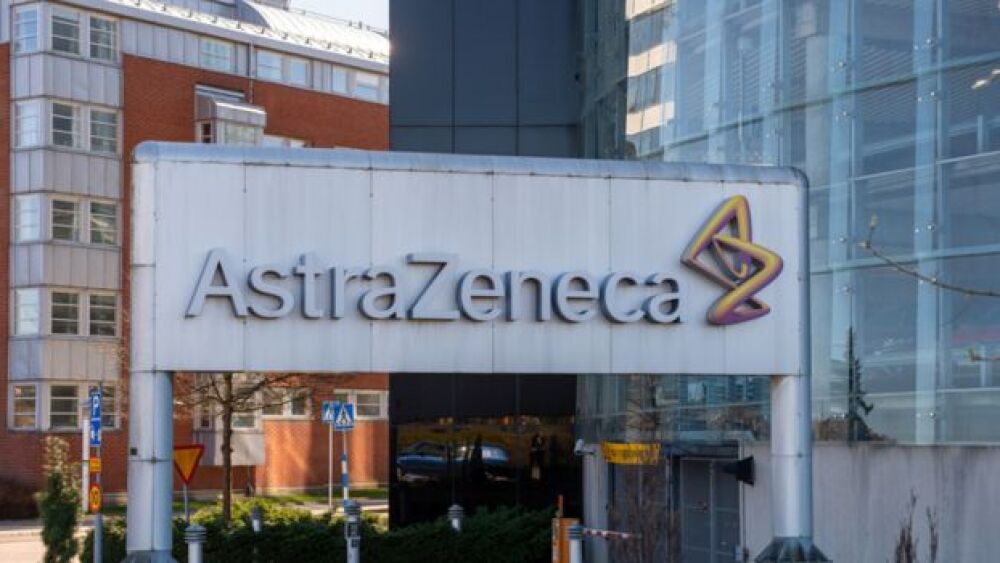With the acquisition, AstraZeneca will gain access to Icosavax’s investigational combination vaccine IVX-A12, which is being developed for respiratory syncytial virus and human metapneumovirus in older adults.
Pictured: AstraZeneca signage at its facility in Gothenburg, Sweden/iStock, Wirestock
AstraZeneca on Monday inked a definitive acquisition agreement with vaccine developer Icosavax in a deal that could potentially reach $1.1 billion in value, as the biopharma giant targets the respiratory syncytial virus market.
Under the terms of the deal, AstraZeneca will purchase all outstanding shares of Icosavax for $15 a pop and will pledge up to $5 per share in contingent value right, dependent on specific regulatory and net sales milestones. AstraZeneca will also make an upfront payment of approximately $838 million, which represents a 43% premium to Icosavax’s closing market price on Monday.
The upfront payment plus the maximum contingent value sum represent a total equity value of around $1.1 billion, which is at a 130% premium to Icosavax’s volume-weighted average price for the last 60 trading days before the acquisition.
AstraZeneca will gain the rights to Icosavax’s mid-stage combination vaccine candidate IVX-A12, being developed for both respiratory syncytial virus (RSV) and human metapneumovirus (hMPV) in older adults.
With the acquisition of Icosavax, AstraZeneca is positioning itself as a potential competitor to both GSK and Pfizer, which have FDA-approved RSV vaccines on the market. GSK’s Arexvy became the first authorized RSV shot in May 2023 and has pulled far ahead of its main competitor, Pfizer’s Abrysvo, which won approval a month after, in June 2023.
Icosavax on Monday unveiled positive topline Phase II data for IVX-A12, showing that 28 days after inoculation the vaccine candidate could elicit a robust immune response against both RSV and hMPV—with or without an adjuvant.
The combo shot was generally well-tolerated with most cases of systemic and local adverse events being mild or moderate in severity. There were also no documented cases of fevers, vaccine-related serious adverse events or toxicities leading to discontinuation.
Aside from the investigational vaccine, AstraZeneca will also gain ownership of Icosavax’s proprietary virus-like particle (VLP) vaccine technology, which allows the “high-density, multivalent display of antigens in a manner that closely resembles the structure of a virus,” according to the biotech’s website.
Vaccine candidates developed using the VLP platform can induce a stronger and more durable immune response than traditional antigen-based vaccines, Icosavax contends.
Iskra Reic, executive vice president of vaccines and immune therapies at AstraZeneca, said in a statement that Icosavax’s VLP platform “has the potential to transform prevention against severe infectious diseases, including RSV and hMPV.”
The Icosavax purchase gives AstraZeneca a “Phase III-ready lead asset” as well as the technological platform to further discover and develop other combination vaccines against respiratory viruses, Reic added.
The companies expect to close the transaction in the first quarter of 2024, pending regulatory and anti-trust clearances and other customary closing conditions. Once the acquisition has been completed, Icosavax will merge with an AstraZeneca subsidiary.
Tristan Manalac is an independent science writer based in Metro Manila, Philippines. He can be reached at tristan@tristanmanalac.com or tristan.manalac@biospace.com.






